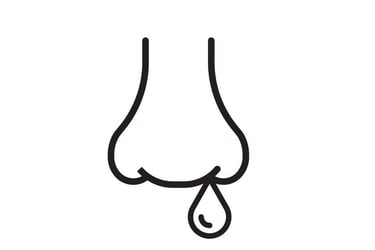Sinus Infection
What is Sinus Infection?
A sinus infection, or sinusitis, is an inflammation of the tissue lining the sinuses, which are hollow air-filled spaces in the bones of your face. This inflammation causes mucus to build up instead of draining properly, leading to congestion and pressure.


Common Symptoms?
Facial pain or pressure around your eyes, cheeks, and forehead, which may worsen when you bend over.
Nasal congestion or stuffiness that makes it difficult to breathe through your nose.
Thick, discolored mucus (yellow or green) that drains from your nose or down the back of your throat (post-nasal drip).
Headache, especially in the front of your head.
Reduced sense of smell and taste.
Cough, which may be worse at night.
Sore throat.
Fatigue.
Bad breath.
Prevalence and Age Distribution?
In the United States, sinusitis is a very common condition:
Approximately 12% of the adult population is diagnosed with sinusitis.
This translates to about 30 million adults affected annually.
Chronic rhinosinusitis alone affects between 5% and 12% of the global population, with U.S. estimates ranging from 12.3% to 14.6%.
For adults, acute sinusitis is the fifth most common reason for an antibiotic prescription, though a majority of cases are viral and resolve without antibiotics.
Sinus infections affect people of all ages, but the patterns of sinusitis and the sinuses involved differ between children and adults.
The above is for informational purposes only. For medical advice or diagnosis, consult a professional.
